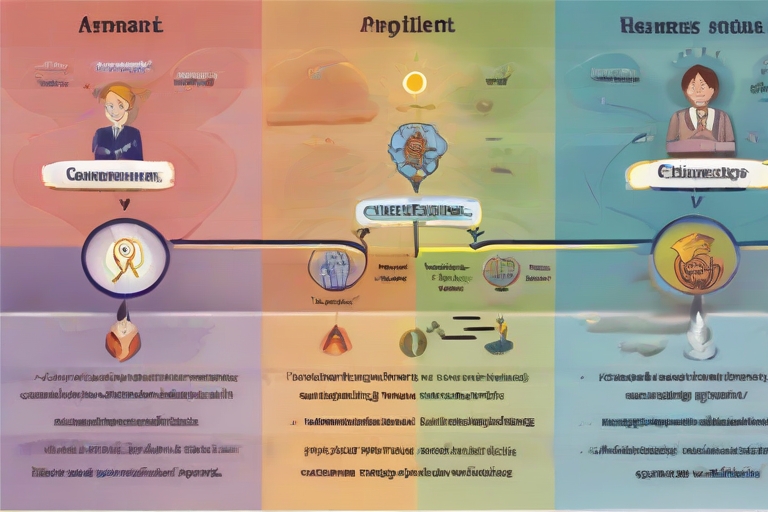The Art of Rejuvenating Rest
Unveiling Six Sleep Principles for Ultimate Well-being
Sleep and Your Health
Quality sleep, both in duration and depth, is an irreplaceable cornerstone of a healthy body and mind. Researchers have meticulously documented that chronic sleep deprivation exponentially amplifies the risk of various chronic diseases, thus necessitating a robust approach to safeguard one’s health. Alarming statistics from the Centers for Disease Control have revealed that approximately one-third of Americans habitually dance with sleep deprivation. The startling truth is that prioritizing rest is not merely a leisurely endeavor, but rather a fundamental step to fortify your physical and mental fortitude.
Exercise: The Bedrock of Slumber

The science behind sleep restoration underscores the pivotal role of exercise in this process. Engaging in a heart-pounding, 30-minute workout stimulates remarkable improvements in sleep quality and rapid sleep onset. Remarkably, it is the intensity, not the duration, that matters. Moderate to vigorous workouts, designed to elevate your heart rate and elevate your core temperature, hold the key. Interestingly, some experts advocate scheduling this exercise bout before the evening meal, as it boosts endorphin levels and enhances vitality. The morning’s Kapha period, spanning from 6 to 10 A.M., aligns perfectly with Ayurveda’s wisdom on invigorating physical activity.
Embrace Consistency
The human body, a finely tuned orchestra, thrives on rhythmic routines. Like clockwork, our bodily functions respond to external cues, ensuring seamless orchestration of hormones governing alertness, digestion, productivity, and sleep. Picture this: if you unfailingly rise at 6 A.M., your body instinctively initiates cortisol release just before the alarm beckons. Such precision renders alarm clocks redundant for those in the rhythm. Similarly, consistent meal times prompt the timely production of hydrochloric acid for efficient digestion. Remarkably, the same rhythmic cadence applies to sleep. Maintaining a predictable bedtime ritual triggers the intelligent release of melatonin, aligning perfectly with your slumber needs. In essence, synchronize your daily routines to your body’s innate wisdom.
Embracing Spirituality: What Does It Mean to Be a Spiritual Person?
A Digital Sunset for Restful Nights

In our modern lives, the siren call of electronic screens is ever-present. Common knowledge dictates the necessity of curbing screen time before bed, but few heed the advice. Delving into research, it’s evident that the blue light emitted by screens in the two-hour window before bedtime exacts a heavy toll on sleep. Melatonin production is inhibited, sleep disturbances linger, and circadian rhythms are forcibly skewed. Harvard researchers unequivocally establish that blue light is twice as menacing as green light in suppressing melatonin and distorting our circadian clock. Therefore, the pragmatic solution is to power down all screen devices two hours before sleep. When this isn’t feasible, don the blue-light-blocking glasses to mitigate the disruption.
Chill Out for Better Sleep
The bedroom’s temperature turns out to be a potent ally for restful slumber, as a National Sleep Foundation survey affirms. As you prepare to embrace the arms of Morpheus, your body orchestrates a natural cooling process. Sleep eludes those with elevated core body temperatures. To ensure a peaceful night, maintain the bedroom temperature within the optimal range of 60 to 68 degrees Fahrenheit. An intriguing addition to your pre-sleep ritual is a warm bath two hours before bedtime. This ingeniously simulates the desirable core temperature drop, setting the stage for serene sleep. A meta-analysis of 17 studies echoes this wisdom, proving that an evening shower or bath in water ranging from 104 to 108.5 degrees Fahrenheit elevates sleep quality and hastens sleep onset.
Shed Stress for Serenity

Carrying the baggage of anxiety, worry, or frustration to bed is a guaranteed recipe for a restless night. Rather than brooding over the day’s challenges, cultivate a practice of letting go. Meditation, journaling, reading, and restorative yoga serve as conduits for releasing those restless thoughts that breed sleeplessness. An effective technique, endorsed by positive psychology pioneer Martin Seligman, is to reflect on the day’s successes. Writing down three positive occurrences and delving into the “why” behind them has shown to augment happiness and diminish depression scores. Seligman’s words underscore this: “It works because it changes your focus from the things that go wrong in life to the things that you might take for granted that go well. And focusing your attention on things that go well breaks up depression and increases happiness.” Regardless of your method, integrate stress-reduction practices into your nightly wind-down ritual.
A Pistachio-Infused Lullaby
The edibles in nature’s apothecary have remarkable powers, and pistachios have emerged as potential sleep elixirs. An analysis by Louisiana State University reveals their secret: pistachios contain phenolics that thwart the conversion of tryptophan into toxic compounds, facilitating its transformation into melatonin. The surge in tryptophan is a promising aid for delayed sleep onset, sleep duration, and overall sleep quality. Furthermore, pistachios boast magnesium, B6, and protein, all of which conspire to optimize your slumber. A bedtime snack of one or two ounces of these nutty delights may well become your gateway to a night of uninterrupted rest.
In summary, alongside exercise and a wholesome diet, sleep represents a foundational pillar of well-being. By unlocking the secrets of sound slumber, you seize control of your health and elevate your life’s quality to new heights. Rest assured, the journey to a more energized, productive, and optimistic you begins with embracing these six rejuvenating principles of sleep.
Elevating Well-being Through Rejuvenating Sleep
Making Sleep a Priority
In today’s fast-paced world, the significance of a good night’s sleep cannot be overstated. The modern lifestyle often encourages a relentless pursuit of productivity, relegating sleep to the back seat. However, understanding that adequate and restorative sleep is a linchpin for a vigorous and enriching life prompts a shift in priorities. By incorporating the six principles of rejuvenating rest into your daily routine, you’re embarking on a journey towards optimizing your sleep and, in turn, your overall well-being.
Sleep as the Cornerstone of Health

Before delving deeper into these principles, it’s essential to grasp the foundational role that sleep plays in your overall health. Chronic sleep insufficiency acts as a catalyst for an array of major diseases, escalating the risk factors exponentially. Heart disease, diabetes, obesity, and even mental health issues are just a few examples of the ailments that flourish in the shadow of sleep deprivation. The Centers for Disease Control’s unsettling revelation that nearly one-third of Americans consistently skimp on sleep underscores the need for a change. Rest is not an indulgence; it’s a requirement for maintaining your health and vitality.
The Exercise Paradox
The first principle, exercise, might seem paradoxical at first glance. After all, exercise is typically associated with increased alertness and physical activity. However, research in the field of sleep unveils the hidden potential of exercise as a sleep aid. The key lies in the timing and intensity. Engaging in a thirty-minute, heart-pounding workout raises the quality of your sleep and hastens the onset of slumber. Moderate to vigorous exercise that elevates your heart rate is the golden ticket. Intriguingly, some experts propose scheduling your exercise routine in the morning, harnessing the invigorating benefits of the Kapha period in Ayurveda. This window, from 6 to 10 A.M., is when your body is naturally primed for movement.
The Power of Routine
Consistency is the unsung hero in the quest for better sleep. Your body thrives on routine, and adhering to a regular schedule helps synchronize your internal clock with the external world. By consistently waking up at the same time each day, your body learns when to release cortisol, the hormone that kickstarts your day. This reliability ultimately renders alarm clocks superfluous for those who’ve established a steadfast routine. The same principle applies to meal times and, of course, sleep. Going to bed at the same time every night prompts your body’s intelligent system to produce melatonin, setting the stage for a restful night. In essence, work harmoniously with your body’s wisdom by weaving predictability into your daily routines.
The Dusk of the Digital Age
The digital era has ushered in unprecedented advancements, but it has also woven a complex web of sleep disruption. The pervasiveness of screens in our lives, from smartphones to laptops, has brought about an inadvertent intrusion into our sleep patterns. Research has unveiled the detrimental effects of the blue light emitted by screens within two hours of bedtime. Melatonin production is stifled, and the disruption echoes throughout the night, wreaking havoc on your sleep. Harvard’s scientific comparison of blue and green light exposure before sleep underscores the gravity of the situation. Blue light suppresses melatonin for twice as long as its green counterpart, and it jarringly distorts our circadian rhythms. The solution is clear: power down your devices at least two hours before bedtime. If this isn’t feasible, don blue-light-blocking glasses to shield your melatonin production.
Embracing the Cool Embrace of Sleep

The National Sleep Foundation’s poll has revealed a surprising ally in the pursuit of a peaceful night’s rest: a cool bedroom temperature. As you prepare for slumber, your body orchestrates a natural cooling process. Studies demonstrate that those experiencing insomnia tend to have elevated core body temperatures before falling asleep. The optimal range for bedroom temperatures lies between 60 and 68 degrees Fahrenheit. In a curious twist, taking a warm bath two hours before bedtime can mimic the body’s natural temperature drop, providing an ideal environment for sleep. A meta-analysis of 17 studies further bolsters this notion, confirming the efficacy of an evening shower or bath with water temperatures between 104 and 108.5 degrees Fahrenheit in enhancing sleep quality and onset.
Releasing the Day’s Burdens
Restlessly wrestling with the day’s challenges as you retire to bed is a recipe for a night filled with tossing and turning. Rather than harboring anxiety, worry, or frustration, make a practice of releasing these burdens. Meditation, journaling, reading, or engaging in restorative yoga are all effective methods to free your mind from the grip of the day’s stressors. A remarkable approach to putting the day into perspective is to highlight the positive. Pioneered by Martin Seligman, this practice entails writing down three things that went well during the day and exploring why they did. This simple exercise yields measurable increases in happiness and lower depression scores. Seligman aptly sums up the effect, “It works because it changes your focus from the things that go wrong in life to the things that you might take for granted that go well. And focusing your attention on things that go well breaks up depression and increases happiness.” Regardless of your chosen method, make the release of daily stress a regular component of your nightly wind-down ritual.
The Nutty Path to Sleep
The culinary world is a treasure trove of natural remedies, and pistachios have emerged as a potential sleep elixir. Louisiana State University’s analysis unveils the enigmatic powers of pistachios: they contain phenolics that prevent the conversion of tryptophan into toxic compounds, facilitating its transformation into melatonin. The rise in tryptophan is a beacon for improved sleep onset, duration, and quality. Furthermore, pistachios boast magnesium, B6, and protein, all of which contribute to a more peaceful slumber. Indulging in an ounce or two of these nutty delights before bedtime might just be the key to a night of uninterrupted rest.
Prioritizing Your Well-being
In summary, sleep is a linchpin of health and well-being, alongside exercise and nutrition. By embracing the principles of rejuvenating rest, you take charge of your health and unlock the path to a life filled with energy, productivity, and optimism. The journey begins with prioritizing your sleep, as it lays the foundation for a life lived to the fullest. It’s time to make the pursuit of rejuvenating sleep a non-negotiable aspect of your daily life.
Prioritizing Your Well-being at Work
Conclusion

In the pursuit of a healthier, more fulfilling life, the art of rejuvenating sleep stands as a pillar of paramount importance. These six principles, each carefully curated to promote and optimize your sleep, offer the key to unlocking a treasure trove of well-being. By weaving exercise into your daily routine, embracing consistency, minimizing screen exposure before bedtime, maintaining an ideal bedroom temperature, releasing the day’s burdens, and even indulging in a few pistachios, you’re setting the stage for restful nights and vibrant days.
The essence of these principles revolves around the understanding that sleep is not a luxury but a vital necessity. Sleep plays a profound role in physical and mental health, a truth underscored by the perilous effects of chronic sleep insufficiency. By implementing these principles, you embark on a transformative journey toward a healthier, happier, and more productive life.
FAQ
1. What’s the ideal exercise routine for better sleep?
For optimal sleep benefits, engage in moderate to vigorous exercise for a minimum of 30 minutes. The key lies in elevating your heart rate and core body temperature. Many experts recommend morning workouts during the Kapha period between 6 and 10 A.M., as it aligns with your body’s natural rhythms.
2. How can I establish consistent daily routines?
Consistency in daily routines can be achieved by setting regular wake-up times, meal times, and bedtime. Your body responds to these cues by releasing hormones to match your schedule. Over time, your body’s internal clock syncs up with your chosen routine, making it easier to wake up and fall asleep at the same times daily.
3. Is there an alternative to shutting down screens two hours before bedtime?
If you can’t avoid screens two hours before bedtime, consider wearing blue-light-blocking glasses to minimize the disruption to your sleep. These glasses filter out the sleep-disturbing blue light, allowing you to use your devices while reducing the impact on your melatonin production.
4. What is the best bedroom temperature for restful sleep?
The ideal bedroom temperature for restful sleep falls between 60 and 68 degrees Fahrenheit (15.6 to 20 degrees Celsius). This range supports the natural cooling process your body undergoes as it prepares for slumber. You can also try taking a warm bath two hours before bed to mimic this cooling effect.
5. How can I release daily stressors before bedtime?
Releasing daily stressors is crucial for a peaceful night’s sleep. Techniques such as meditation, journaling, reading, and restorative yoga can help you let go of anxiety and worries. You can also follow Martin Seligman’s practice of writing down three positive things that happened during the day and why, which has been shown to increase happiness and reduce depression.
6. Can I replace pistachios with other foods for better sleep?
While pistachios are known for their sleep-inducing properties, you can also consider other foods rich in tryptophan, magnesium, B6, and protein. Examples include turkey, chicken, pumpkin seeds, and spinach. A balanced diet that incorporates these elements can contribute to better sleep.
Incorporating these principles into your life can lead to profound improvements in your sleep quality and overall well-being. As you embark on this journey to prioritize rejuvenating sleep, remember that your health and happiness are well worth the effort. Sweet dreams await!







